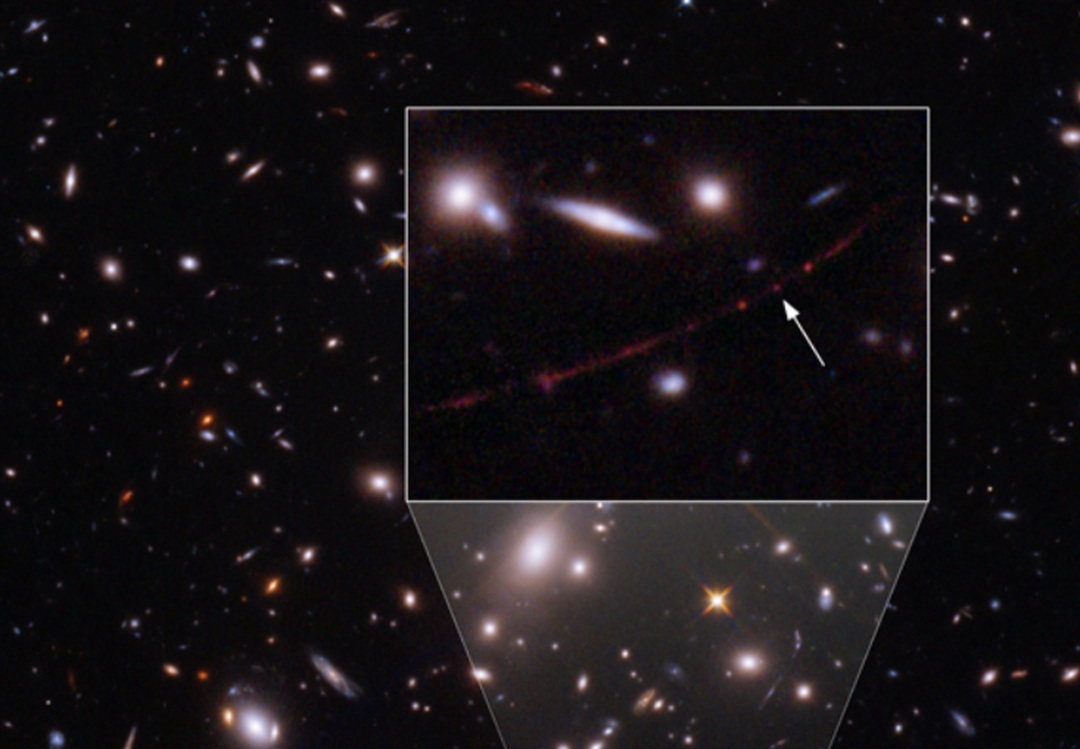The United States National Aeronautics and Space Administration (NASA) reported on Wednesday, April 30th, that the Hubble Space Telescope, owned by the company, discovered the farthest star observed to date, located 12.9 billion light years away.
According to the NASA report, the celestial body found registers a size 50 times greater than the Sun, and a temperature equivalent to 20,000 degrees; In addition, the date of its existence dates back at least 900 million years after the Big Bang explosion.
Data referenced by scientists estimated that the star, named Earendel, came from the earliest era of the universe, designated as a redshift of 1.5; it refers to the expansion of the cosmos causing light from objects to shift to longer, redder wavelengths as it travels toward Earth.
In that sense, scientists point out that Earendel already existed when the universe marked 30 percent of its current age; Thus, although the newly discovered star is dead, the finding is described by NASA as historic, amazing and unprecedented.
“We don’t know how long it lived, but surely less than 100 million years, which is very little compared to other stars like the Sun that can live 100 times longer; the light from its explosion has not yet reached us, but it is on its way and will arrive within the next 100 million years at the most”, specified the astronomer José María Diego.
On the other hand, the astronomer at Johns Hopkins University, Brian Welch, named the newly detected star of light as Earendel, an old term for morning star; after an exhaustive study of the galaxy, communicating that the novel discovery will drive an unexplored period of star formation.
“Studying Earendel will be a window into an era of the universe that we are unfamiliar with, but that led to everything we do know. It’s like we’ve been reading a really interesting book, but we started with the second chapter, and now we will have a chance to see how it all got started“, Welch stated.

